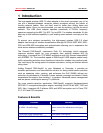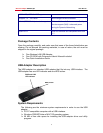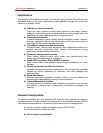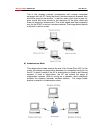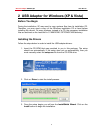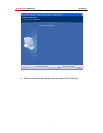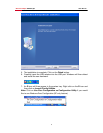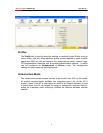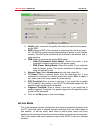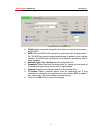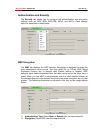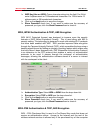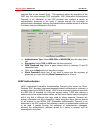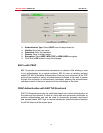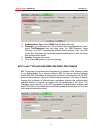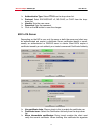
Wireless Adapter RNX-EasyN1 User Manual
10
h Profile: Enter a name for the profile; this does not need to be the same
as the SSID.
h SSID: Enter the SSID of the network or select one from the drop-down
list. The SSID is a unique name shared among all points in your wireless
network. The SSID must be identical for all points in the network, and is
case-sensitive.
h PSM: Select a power saving mode (PSM) option.
o CAM (Continuously Active Mode): Select this option if your
notebook is always connected to the power supply.
o PSM (Power Saving Mode): Select this option if your notebook
uses its battery power. This option minimizes the battery usage
while the network is idle.
h Network Type: Select Infrastructure from the drop-down list.
h TX Power: Select a transmit power from the drop-down list. If your
notebook is connected to external power then select 100% or auto, if
not, select one of the lower values for power saving.
h RTS Threshold: Place a check in this box if you would like to enable
RTS Threshold. Any packet in the RTS/CTS handshake larger than the
specified value (bytes) will be discarded.
h Fragment Threshold: Place a check in this box if you would like to
enable Fragment Threshold. Any packet larger than the specified value
(bytes) will be discarded.
h Click on the OK button to save the changes.
Ad-hoc Mode
This is the simplest network configuration with several computers equipped with
the PC Cards that form a wireless network whenever they are within range of
one another. In ad-hoc mode, each client is peer-to-peer, would only have
access to the resources of the other client and does not require an access point.
This is the easiest and least expensive way for the SOHO to set up a wireless
network.



